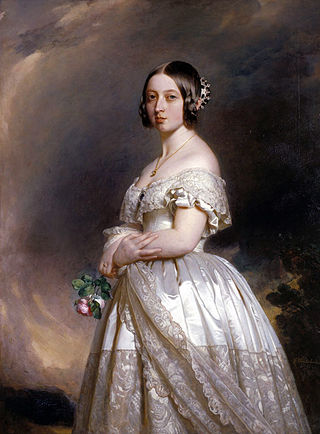Ricki is a unisex given name. Notable people with the name include:
Amy is an English feminine given name, the English version of the French Aimée, which means beloved. It was used as a diminutive of the Latin name Amata, a name derived from the passive participle of amare, “to love”. The name has been in use in the Anglosphere since the Middle Ages. It was among the 50 most popular names for girls in England between 1538 and 1700. It was popularized in the 19th century in the Anglosphere by a character in Sir Walter Scott's 1821 novel Kenilworth, which was based on the story of Amy Robsart. Enslaved Black women in the United States prior to the American Civil War were more likely to bear the name than white American women because slave masters often chose their names from literary sources. The name declined in use after 1880 but was revived due to the hit song Once in Love with Amy from the 1948 Broadway musical Where's Charley?. The name peaked in usage in the United States between 1973 and 1976, when it was among the five most popular names for American girls. It remained among the top 250 names for American girls in the early 2020s.
Steve is a masculine given name, usually a short form (hypocorism) of Steven or Stephen.
Reid is a surname of Scottish origin. It means "red".
Blair is a Scots-English-language name of Scottish Gaelic origin.
Corinne is a female name, the French and English variant of Corina, of ancient Greek origin, derived from κόρη (korē) meaning "beautiful maiden". It became popular following the publication of Corinne, or Italy, an 1808 novel by Madame de Staël.

Victoria is a feminine given name. It is also used as a family name.
Lauren is mostly a feminine given name. The name's meaning may be "laurel tree", "sweet of honor", or "wisdom". It is derived from the French name Laurence, a feminine version of Laurent, which is in turn derived from the Roman surname Laurentius.
Chris is a short form of various names including Christopher, Christian, Christina, and Christine. Chris is also used as a name in its own right, however it is not as common.
Devine is an Irish surname derived from Ní Dhaimhín / Ó Daimhín. Notable people with the surname include:
Megan is a Welsh feminine given name, originally a diminutive form of Margaret. Margaret is from the Greek μαργαρίτης (margarítēs), Latin margarīta, "pearl". Megan is one of the most popular Welsh-language names for women in Wales and England, and is commonly truncated to Meg.
Hunter is a Scottish surname. Notable people with the surname include:
Ferguson is an Anglicization of the Scots Gaelic "Macfhearghus", a patronymic form of the personal name Fergus which translates as son of the angry (one).

Tiffany is a primarily English feminine form of the Greek given name Theophania. It was formerly often given to children born on the feast of Theophania, that is, Epiphany. The equivalent Greek male name is Theophanes (Θεοφάνης), commonly shortened to Phanis (Φάνης) and the female is Theophania (Θεοφανία) or Theophano (Θεοφανώ), colloquially Phani (Φανή).
Dana is a unisex given name. It was among the 100 most popular names given to girls born in the United States between 1960 and 1990. It has since fallen in popularity and was ranked the 446th most popular name given to girls born in the United States in 2007. As a male forename it is well known in the United States, being in the 314th rank out of 1,219 in the 1990 U.S. Census.
Stacy, sometimes spelled Stacey, Staci, Stacie, or Stacii, is a common first name for women and men.

Fox is a surname originating in England and Ireland. Variants include Foxe and Foxx.
Kim is a unisex given name. It is also used as a diminutive or nickname for names such as Kimber, Kimberly, Kimberley, Kimball and Kimiko. In Kenya, it is short for various male names such as Kimutai and Kimani. In Vietnam, it is also a unisex name.

April is a feminine given name taken from the month of the same name. It was the most popular month name given to girls in the United States between 1960 and 2000. It was most well used in the Southern United States, where the spring season begins earlier than other regions of the country. The name is believed to have been particularly well-used because April is a month associated with renewal. The name has since declined in usage in English-speaking countries, but remains in regular use.
Nia is a given name which appears in many cultures.
This surname has two distinct and separate origins: